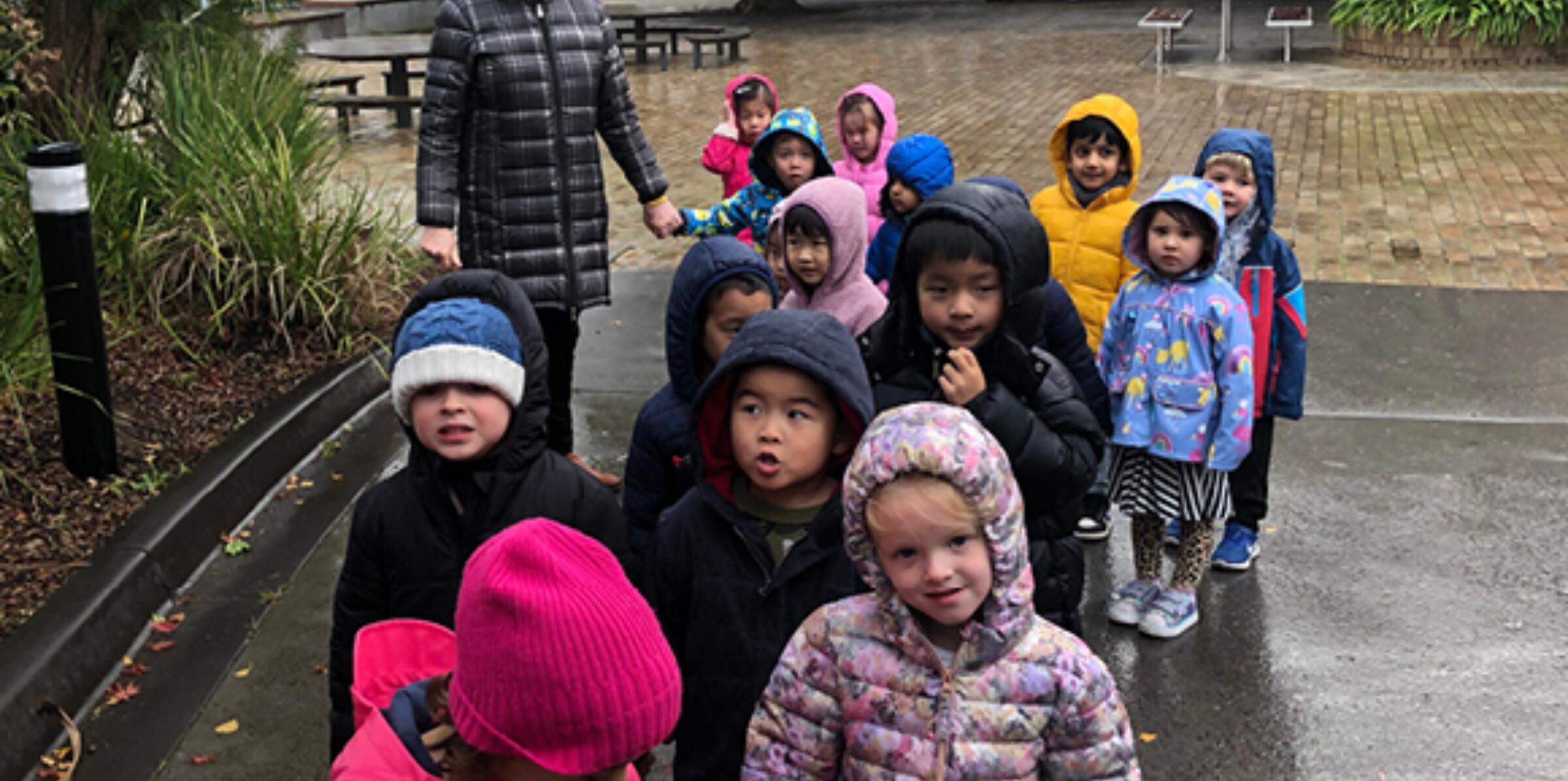As I walked along in the rain and the mist on the beach over the weekend with many layers, including my ski beanie, warm coat with the light rain drizzling down, I was enjoying the elements and thinking about many conversations recently with adults complaining about the weather. On the other hand, not one child has complained – we have been for rain walks, donned our coats, boots and beanies. We have gone splashing in puddles and watched rainbows, seen reflections and tried to catch raindrops in our mouths – very challenging. We have watched and talked about the gutters flowing over and discussed what animals like the rain a lot, and what other ones find a shelter.
The children have embraced the elements and continued their play and adapted it to the elements. There is much significant research now that supports and indeed encourages children to be outside. Clearly, COVID-19 has made this even more important, as there is physically more space outside, creating opportunities for greater distance with groups but also the elements mean that sneezes and coughs are less likely to spread so quickly as in a heated smaller indoor space.
The Victorian Early Year Learning framework (VEYLF) is very clear that outdoor opportunities be supported. Learning outcome two states that ‘Children are connected to and contribute to their world’. This outcome requires educators to help children to develop an awareness of the impact of human activity on the environment and the interdependence of living things. Natural environments within children’s services are the arena in which children learn these things.
Also understanding that there are three different stages about nature and outdoors. Being in nature, outside, you might be having a picnic or play some games or activities. Then there is being with nature playing outside in the garden, climbing trees, digging in the garden, planning plants. Then a significant development is engaging in nature, using natural material in the outdoors, learning about the environment respecting the environment and learning to care for it, understanding the natural environment, what the signs of nature are, sky, land and water.
It is all a matter of perspective and appropriate clothing – you can’t catch a cold by being in the cold. Many of my friends and colleagues from overseas talk about how fortunate we are in Melbourne especially with the differentiation of the four seasons (sometimes in one day!) However, those who live and work in Ireland and Scotland would almost never get outside if waiting for a sunny day! Similarly, further north, with snowfalls for three months of winter, going out in the winter requires time and support and spending a length of time outside. Adapting to the weather conditions of each region or country is an important lesson for us all and I am incredibly grateful for the Melbourne weather as much as I embrace and love winter, I do look forward to spring blossoming, then summer freedom and the delights of autumn.
Enjoy the holidays.
Wendy Seidler
Director of ELC Kew

